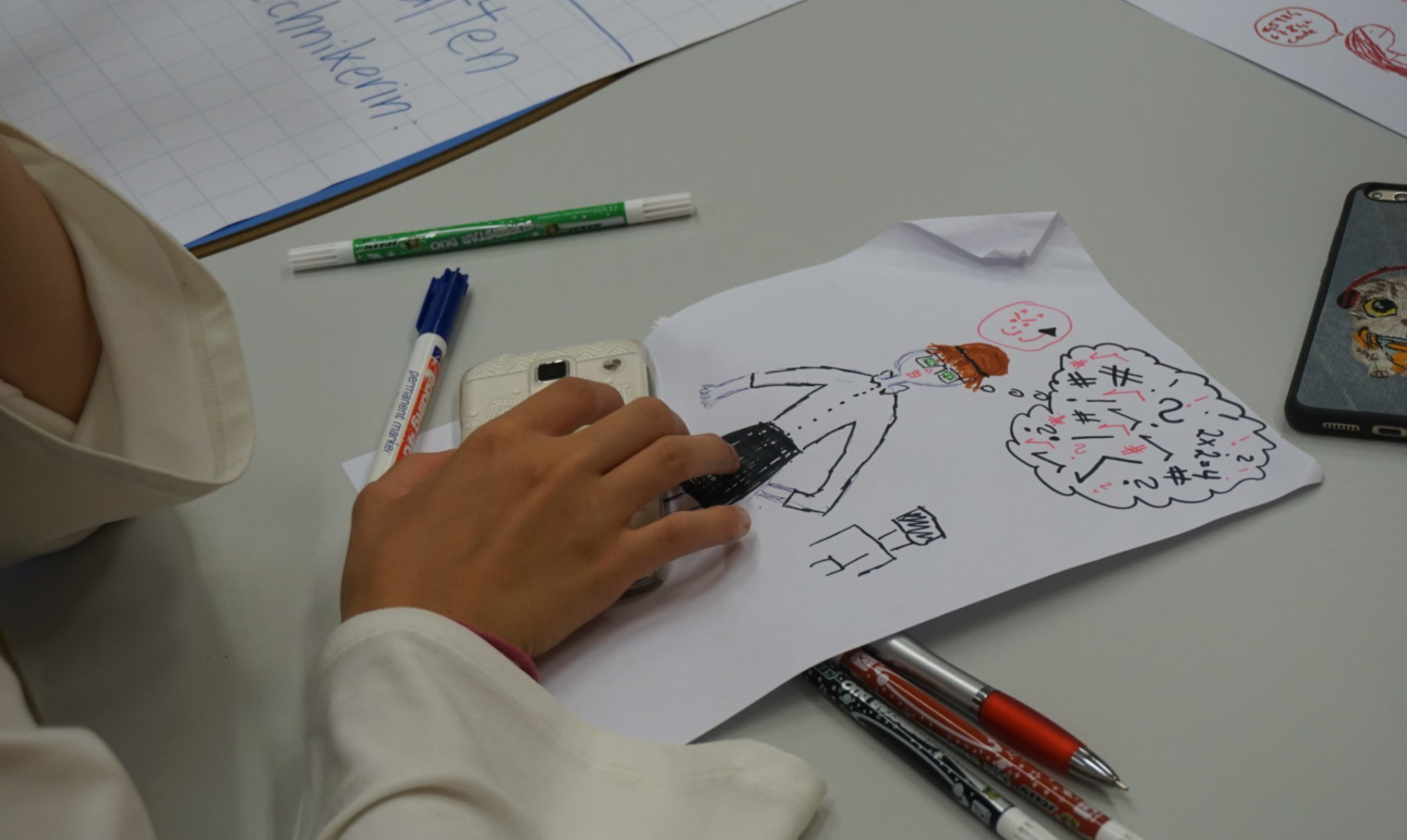ORCID: Bernadette Spieler (0000-0003-2738-019X)
Download full List: “Publication_List_Spieler 022024” (02.2024)

Prof. Dr./PhD Bernadette Spieler
play x inspire x share
Download full List: “Publication_List_Spieler 022024” (02.2024)
How to cite: Spieler, B., & Girvan, C. (2025). The PECC Framework: Promoting Gender Sensitivity and Gender Equality in Computer Science Education. Computers, 14(7), 249. https://doi.org/10.3390/computers14070249
Continue reading “The PECC Framework: Promoting Gender Sensitivity and Gender Equality in Computer Science Education”How to cite: Bernadette Spieler, Melanie Kieber, Julia Lanz, Harald Burgsteiner, Sandra Tomeschek, Martin Kandlhofer, Luciana Ayciriex, Karl Kruusamae. Constructionism as a Key to Interdisciplinary Competences: Combining Computational Thinking, Entrepreneurship, and Green Skills. (2025). Constructionism Conference Proceedings, 8, 249-260.
https://doi.org/10.21240/constr/2025/70.X
Continue reading “Constructionism as a Key to Interdisciplinary Competences”How to cite: Larissa Meyer-Baron, Janine Truetsch, Bernadette Spieler. From Play to Code: Preparing Young Learners for Coding with an Unplugged Board Game (Grade 4). (2025). Constructionism Conference Proceedings, 8, 595-596.
Continue reading “From Play to Code”How to cite: Manuela Dahinden, Yvonne Steinbach, Caroline Weckerle, Bernadette Spieler. Nature-based Constructionism: Using Digital Storytelling to Increase Computational Skills and Plant Awareness. (2025). Constructionism Conference Proceedings, 8, 539-542.
https://doi.org/10.21240/constr/2025/113.X
Continue reading “Nature-based Constructionism”How to cite: Mirek Hančl, Bernadette Spieler. IXME: Informatics by Maker Education: A Teacher Training Course on Maker Education in Informatics. (2025). Constructionism Conference Proceedings, 8, 527-529. https://doi.org/10.21240/constr/2025/97.X
Continue reading “IXME: Informatics by Maker Education”How to cite: Trütsch, J., Meyer-Baron, L., & Spieler, B. (2025). IMPACT: Informative Mini-Games for Programmingconcepts and Computational Thinking. Entwicklung eines Unplugged-Programmierspiels für die 4. Klasse. Zwischenbericht. Pädagogische Hochschule Zürich. https://doi.org/10.5281/zenodo.15230186
Continue reading “[GERMAN] IMPACT: Informative Mini-Games for Programmingconcepts and Computational Thinking. Entwicklung eines Unplugged-Programmierspiels für die 4. Klasse. (Zwischenbericht)”Vokabel büffeln per Computerkonsole, recherchieren mit ChatGPT, Nachhilfe vom virtuellen Tutor – die Künstliche Intelligenz hat Einzug gehalten in die Klassenzimmer. Zum Guten? Die Meinungen gehen auseinander. Felix Münger diskutiert mit den beiden Fachleuten Bernadette Spieler und Ralf Lankau.
Redaktion: Felix Münger
Mittwoch, 20.11.2024, 06:05 Uhr
Link zum Beitrag: https://www.srf.ch/audio/kontext/kultur-talk-ki-in-der-schule-lernhilfe-oder-verdummung?id=AUDI20241120_NR_0048
How to cite: Burgsteiner, H., Spieler, B., Kandlhofer, M., & Bieber, R. (2024). ComeThinkAgain – Computational and Entrepreneurship Thinking and Green Agenda Innovations. In Proceedings of the 1st International Conference on Digital Skills and IT Professionalism (pp. 68–69). https://doi.org/10.5281/zenodo.14194730
Continue reading “ComeThinkAgain – COMputational andEntrepreneurship THINKing And GreenAgenda INnovations”How to cite: Spieler, B. (2024). Computational Thinking: Synergien mit Entrepreneurship und Green Skills. OCG Journal: ZukunftsCode, 48(4), 5–7. Link: https://www.yumpu.com/de/document/read/69160861/ocg-journal-zukunftscode
Continue reading “[German] Computational Thinking: Synergien mit Entrepreneurship und Green Skills”